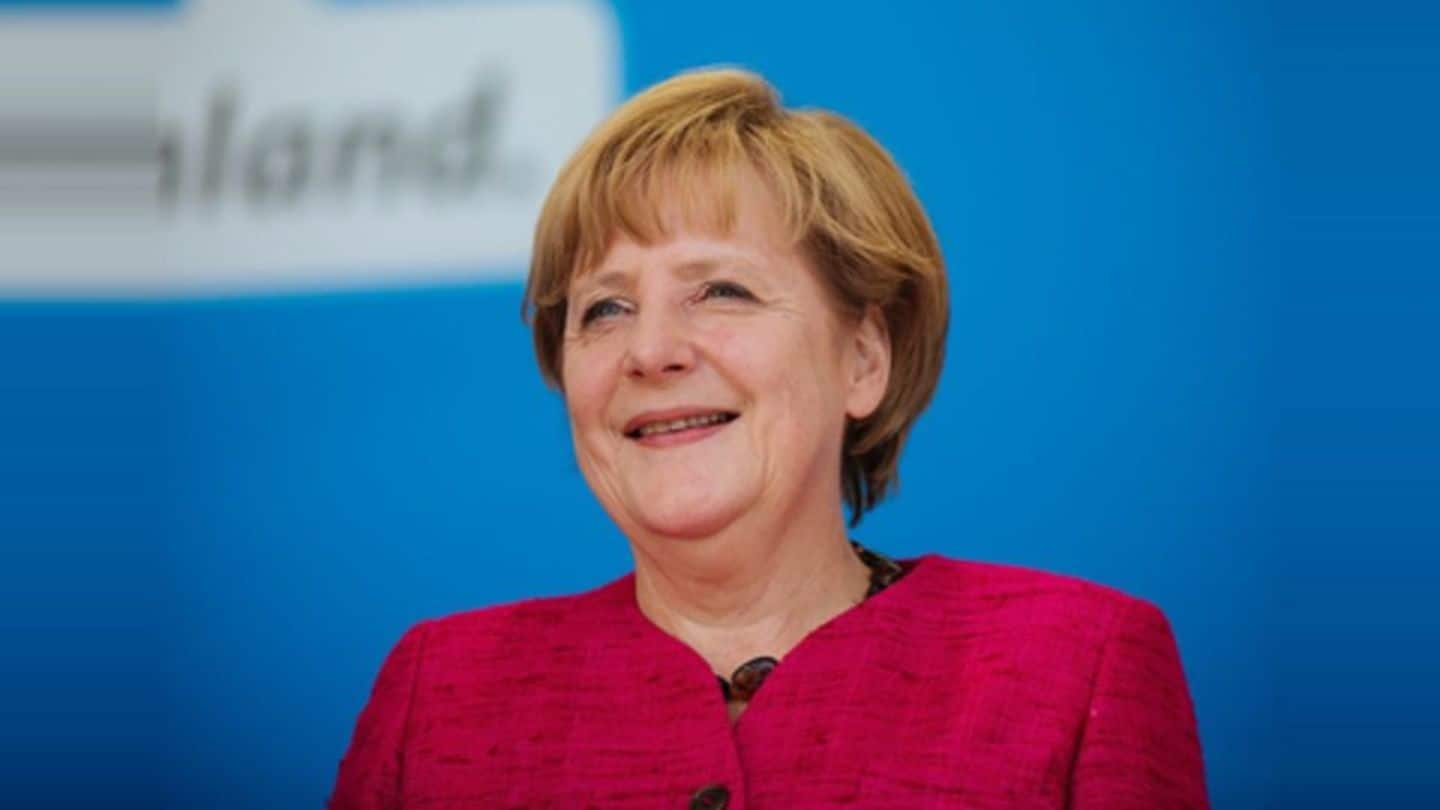
German elections 2017 : Angela Merkel wins despite declining popularity
What's the story
Chancellor Angela Merkel emerged the winner in the 2017 German Federal elections in her fourth successive victory. Merkel's conservative CDU/CSU bloc retained a majority in the parliament. However, this is its worst performance in over 70 years. Pointing to a worrying trend, right-wing party Alternative for Germany made a historic surge in numbers. Is this a sign of Merkel's declining popularity?
Results
German federal elections 2017: What happened?
Germany conducted polls to elect members of the 19th Bundestag on 24 September 2017. A total number of six parties have been elected in a first since the 1950s. Merkel's CDU/CSU and her coalition partner Social Democratic Party (SDP) came first and second securing 32.8% and 20.4% votes respectively. Right-wing party Alternative for Germany (AfD) secured 13.1% votes and unexpectedly came third.
Speech
Merkel addresses supporters
Speaking to supporters, Merkel said that she had hoped for "better results." Referring to how a large number of voters drifted to the right-wing AfD party, she said that she would lend an ear to these citizens in order to bring them back. She apprised her supporters of the government's priorities, including addressing migration and other economic and security issues.
Options
What are Merkel's coalition options?
Merkel is left with very few options. According to observers, a likely result could be a "Jamaica coalition," involving parties that represent colors in the Jamaica flag. These parties include CDU/CSU (Black), the Green Party and the Free Democrats (Yellow). However, differences are likely to crop up, with the Greens wanting to shut down at least 20 coal-fired plants and FDP opposing it.
Analysis
Is this a sign of Merkel's declining popularity?
In 12 years as German Chancellor, Merkel has cemented her identity as the rational, liberal face of Europe, with the attributes of a world leader. The result definitely points to Merkel's declining popularity. It also seems AfD was able to capitalize on the resentment against Merkel. As BBC observes, "Merkel is being punished for opening Germany's door to almost 900,000 undocumented refugees and migrants."